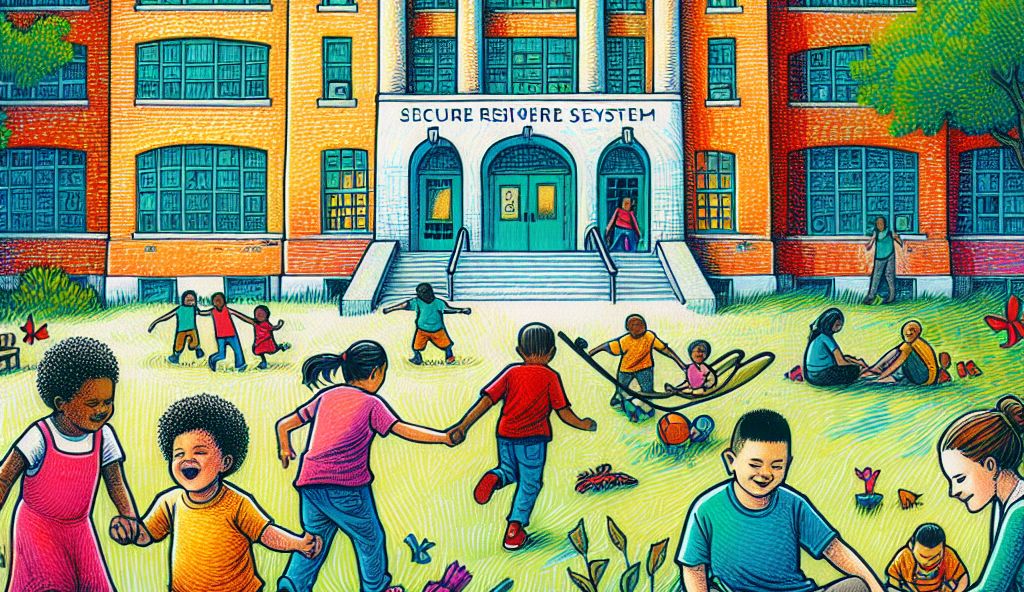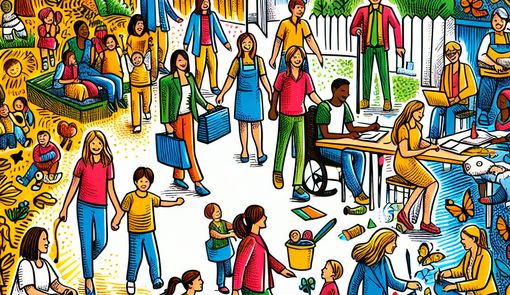Building Resilience in Child Welfare Work

Working in child welfare can be an incredibly rewarding career, providing critical support to vulnerable children and helping to shape better futures. However, it's also a field fraught with emotional challenges. Professionals in this sector are regularly exposed to traumatic stories, difficult family situations, and the pressure of making decisions that will affect children's lives. This can lead to vicarious trauma, compassion fatigue, and ultimately, burnout. Therefore, building resilience is paramount in ensuring the wellbeing of those who work tirelessly to ensure the welfare of children. This article explores strategies for managing the emotional demands of child welfare and prevention of burnout.
Recognizing the Emotional Challenges
The first step towards developing resilience in child welfare work is to acknowledge the unique emotional demands of the job. Child welfare workers are often on the front lines, dealing with crises, confronting abuse, and witnessing the suffering of children and families. Recognizing these challenges openly allows for a proactive approach to managing them. Organizations need to create a culture where it's safe to discuss stress and trauma without stigma.
Establishing Boundaries
One of the foundational strategies for resilience is establishing healthy boundaries. Child welfare workers need to define the lines between their personal and professional lives. Regularly
Frequently Asked Questions
1. What are the common emotional challenges faced by child welfare workers?
Child welfare workers often face a range of emotional challenges due to the nature of their work. These challenges include dealing with traumatic stories, difficult family situations, witnessing the suffering of children, and the pressure of making critical decisions that impact young lives. Understanding and coping with these emotional demands is crucial for maintaining resilience in child welfare work.
2. How can resilience help child welfare workers in managing burnout?
Resilience plays a vital role in helping child welfare workers manage burnout. By developing resilience, professionals can effectively cope with the stress, trauma, and emotional toll of their work. Resilience enables workers to bounce back from challenging situations, maintain a sense of purpose, and sustain their commitment to supporting vulnerable children and families.
3. What are some practical strategies for building resilience in child welfare work?
There are several practical strategies that child welfare workers can implement to build resilience. These include self-care practices such as mindfulness, exercise, and seeking support from colleagues and supervisors. Setting boundaries between work and personal life, cultivating a strong support network, and engaging in reflective practices can also enhance resilience and prevent burnout.
4. How can organizations support the resilience of child welfare workers?
Organizations play a crucial role in supporting the resilience of child welfare workers. By fostering a culture that prioritizes self-care, open communication, and professional development, organizations can create a supportive environment for their employees. Providing training on stress management, trauma-informed care, and promoting a work-life balance are essential ways that organizations can support the resilience and well-being of child welfare professionals.
5. What are the signs of burnout in child welfare workers?
It's important to recognize the signs of burnout in child welfare workers to intervene early and prevent further escalation. Common signs of burnout include emotional exhaustion, depersonalization, decreased job satisfaction, and feeling overwhelmed or helpless. By being aware of these signs, both individuals and organizations can take proactive steps to address burnout and promote mental health and resilience in child welfare work.
Further Resources
Working in child welfare is a demanding yet vital field that requires resilience and self-care. Here are some additional resources to support professionals in the child welfare sector:
- National Child Traumatic Stress Network (NCTSN)
- Link: NCTSN
- The NCTSN provides resources, training, and support for professionals working with children and families who have experienced trauma.
- Child Welfare Information Gateway
- Link: Child Welfare Information Gateway
- A comprehensive resource for information on child welfare policies, programs, and practices in the United States.
- Trauma-Informed Care Implementation Resource Center
- Link: Trauma-Informed Care Implementation Resource Center
- Offers tools, training, and resources for implementing trauma-informed care practices in child welfare settings.
- Self-Care for Child Welfare Professionals
- Link: Self-Care for Child Welfare Professionals
- A guide on self-care strategies specifically tailored for professionals in the child welfare field.
- National Association of Social Workers (NASW)
- Link: NASW
- Provides resources and support for social workers, including those working in child welfare.
- The Child Welfare League of America (CWLA)
- Link: CWLA
- An organization dedicated to the well-being of children and families, offering resources and advocacy for child welfare professionals.
- Mindfulness and Stress Reduction Techniques
- Link: Mindfulness and Stress Reduction Techniques
- Information on mindfulness practices and stress reduction techniques that can benefit individuals working in high-stress environments like child welfare.
- Resilience Building Workshops
- Check with local universities, counseling centers, or mental health organizations for workshops focused on building resilience and coping strategies for child welfare professionals.
These resources aim to provide ongoing support, education, and tools for child welfare professionals to enhance their resilience, promote self-care, and ultimately improve outcomes for the children and families they serve.






